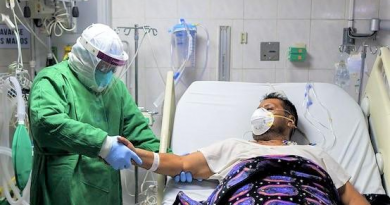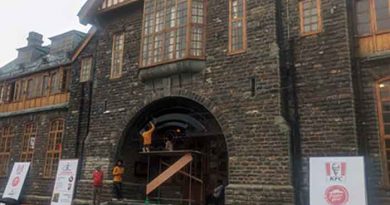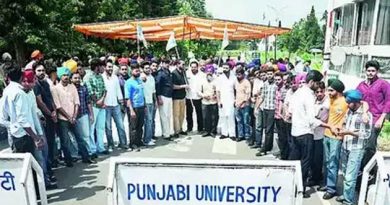Rajiv, Arun Nehru pressured Indira for Darbar Sahib attack, after action She got scared, started chanting mantras and talking about death
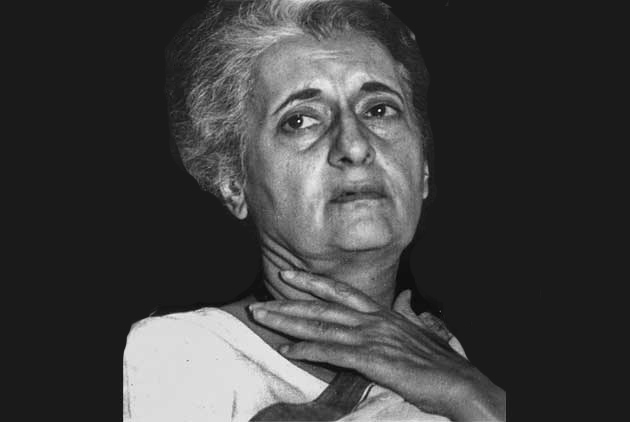
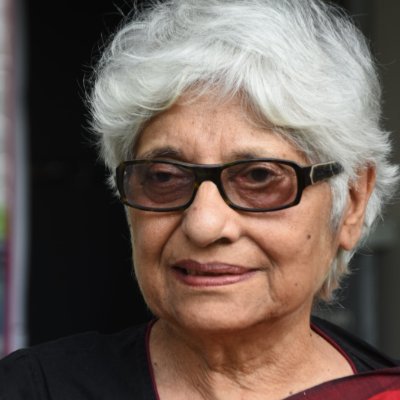 Chandgarh: Journalist Neerja Chowdhury, who recently penned a book, How Prime Ministers Decide, on Thursday said that Indira Gandhi had dithered on initiating Army action at Golden Temple but the younger lot of the party including Arun Nehru, Rajiv Gandhi and Arjun Singh insisted. “Yet she was afraid of moving the Army in the place of worship. These youngsters wanted action. After the Army action, she organised a maha-mrityunjaya puja at her home. After that she often talked about death. She had told Rahul Gandhi not to grieve at her death. She probably had a premonition or she had awareness of the consequences of what the government helmed by her had done,”
Chandgarh: Journalist Neerja Chowdhury, who recently penned a book, How Prime Ministers Decide, on Thursday said that Indira Gandhi had dithered on initiating Army action at Golden Temple but the younger lot of the party including Arun Nehru, Rajiv Gandhi and Arjun Singh insisted. “Yet she was afraid of moving the Army in the place of worship. These youngsters wanted action. After the Army action, she organised a maha-mrityunjaya puja at her home. After that she often talked about death. She had told Rahul Gandhi not to grieve at her death. She probably had a premonition or she had awareness of the consequences of what the government helmed by her had done,”
Chowdhury was speaking at a book-talk session moderated by Resident Editor, The Indian Express, Manraj Grewal Sharma, at Chandigarh. “When I was coming for the book-talk, I was thinking that this issue needs closure. It still festers somewhere. It has hurt the psyche the way the violence was unleashed. It was a very cynical use of power to win elections.”
She recalled how Arun Nehru, former Parliamentarian, maneuvered the way for Rajiv Gandhi after the assassination of the then Prime Minister Indira Gandhi. “Rajiv Gandhi was the accidental prime minister. Arun Nehru once told him the power behind his throne. He had told him how 5,000 Sikhs were killed and Hindu votes consolidated. The violence was used very cynically for vote bank politics. I hope there is healing and closure,”
“…India will take a long time to forget 1984 anti-Sikh riots post assassination of former Prime Minister Indira Gandhi even though the issue needed a closure,” she said.
Speaking on pressure on press and institutions, the author said that there was a buzz in Delhi that Aam Aadmi Party (AAP) convener Arvind Kejriwal was likely to be arrested by the Enforcement Directorate. “He has skipped the summons by ED. I do not know how ED will react. But what surprises me is that nobody has hit the road from either his party, or from his allies. We do not know the substance of the charges against him. But there is a general feeling that only opposition figures are targeted and not the ruling party figures,” Chowdhury said. On the issue of Operation Bluestar at Golden Temple, Chowdhury said that Indira Gandhi had dithered on initiating Army action.
But the younger lot of the party including Arun Nehru, Rajiv Gandhi and Arjun Singh insisted. “Yet she was afraid of moving the Army in the place of worship. These youngsters wanted action. After the Army action, she organised a maha-mrityunjaya puja at her home. After that she often talked about death. She had told Rahul Gandhi not to grieve at her death. She probably had a premonition or she had awareness of the consequences of what the government helmed by her had done,” she said
Talking about Punjab, she said that the state had provided three Prime Ministers (Gulzari Lal Nanda, IK Gujral and Dr Manmohan Singh) to the country, which amounted to 20 per cent. She said Punjab gave India the only PM from minority community, the Sikhs.
On who was her favourite Prime Minister, as she had been covering politics in Delhi and penned the book from her experiences, she said, “I cannot say who is my favourite. There was good in everyone but then there was a very ugly underbelly. I said Dr Manmohan Singh was considered weak, but the way he understood pressure from his party chief Sonia Gandhi, alliance partners for 39 months but did not give up on Indo-US nuclear deal, he exhibited killer’s instinct and finally bagged the deal. I had gone to see him with the book. He was very happy when he saw the chapter on him titled-The Underrated Prime Minister Who Triumphed.”
“Arun Nehru had given a three-point agenda to Rajiv Gandhi. This was Ram Mandir, abrogation of section 370 and universal civil code (UCC). It became the core agenda of BJP. We seem to be getting more polarised now and moving India in that direction. I am hoping there are men and women who will reverse this direction. With 200 million Muslims beleaguered, it is not a happy situation to be in,” she added, At the same time, she said, all political parties seem to be now working on the agenda of polarisation and offering freebies.
“Bhupesh Baghel is very Hindu and so is Kamal Nath,” she said as she advocated federalism and said India was so diverse that it should be run in a coalition way. “Indian is a rich coalition. No country is as plural and diverse as India. That is the way to keep it.”
She said one-nation-one-election plan was not in favour of people, “In India people say the politicians come to them each time there is election. If the elections take place once in five years, they will go to people only once in five years.”
She also said she was fascinated by the Modi phenomenon. “If a chaiwala can become a Prime Minister, and a tribal can become a President, that means power can rest in the periphery in India. This lends a lot of hope.”
On the prevailing situation when media and institutions were being seen as under pressure, she said, “I would not call it an emergency. If it were, we would not be discussing all this here. Challenges are still there. Our times were better. Today’s journalist has to navigate through pressures. This is complex, but working.”
